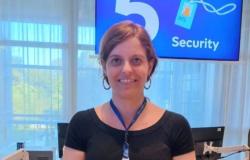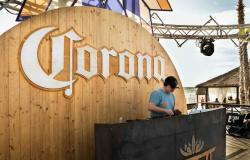The study days of the INFN Three-Year Plan 2025-2027 were held in Lecce on 13 and 14 June, which this year had as their central theme of discussion the great challenges, both those that will engage the physics community in the coming years , both those that our society will have to face, and to overcoming which physics can make a significant contribution. The days of the Three-Year Plan, which opened with the welcome and introduction of Daniele Martello, director of the Lecce Section that hosted the event, are the most awaited and attended annual event by the entire INFN community, because they represent a moment of meeting and discussion on many topics of transversal interest, both scientific and technological, and managerial and organizational.
“The Three-Year Plan arrives in Lecce for the first time on the occasion of the thirty-fifth anniversary of the Section, founded in 1989”, comments Daniele Martello, director of the Lecce Section. “The choice of Lecce as the host venue for the event is also a recognition of the constant work and results obtained throughout the thirty-five years of activity by the Section: a small and geographically delocalized Section, but which has always stood out for its quality of its research and for its staff whose professionalism, commitment and dedication to the organization are well known. I therefore believe that I speak on behalf of everyone, employees, associates and the entire University of Salento, if I say that we are particularly proud to have hosted this edition of the INFN Three-Year Plan”, concludes Martello.
After the institutional greetings of the representatives of the local authorities, including the rector of the University of Salento Fabio Pollice, the two-day proceedings were opened by the speech of the president of the INFN Antonio Zoccoli, during which the results achieved by the organization as solid foundations to face the next big challenges.
“This year we decided to focus the work of the Study Days of the INFN Three-Year Plan on the theme of challenges, because we have many great challenges ahead of us, which will be decisive both for science and for society”, explains Antonio Zoccoli , president of the INFN. “On the one hand there are still many open questions in fundamental physics to which we must find answers, on the other we must face unprecedented technological challenges, which will also have a great impact on our lives, such as artificial intelligence and quantum technologies. The INFN has prepared itself, thanks to targeted investments, to face these challenges as a protagonist, and we are certain that in the coming years we will reap the fruits of what we have been able to sow and of our work, for the benefit of knowledge and society”.
Following this, and before addressing the scientific and technological issues, the general director Nando Minnella spoke on the topic of the path towards a new management and research support model, and Oscar Adriani of the Executive Council who brought the focus on the community of the INFN and future prospects.
As regards the major scientific issues addressed, attention was paid to the European strategy of particle physics: Sandra Malvezzi of the Executive Council presented the next stages of the decision-making process which is moving towards a decisive moment, because in 2025 the community will have to identify the future great machine for the post-HL-LHC era, a machine that will define the future of particle physics and also of Europe’s leadership in this sector.
Another great protagonist, presented by the vice-president of the INFN Marco Pallavicini, was the Einstein Telescope project: the future large research infrastructure for gravitational waves that Italy is applying to host in Sardinia, and which the Government and the Ministry of the University and Research at the forefront strongly committed to its promotion, in collaboration with the INFN and many other national scientific institutions. Furthermore, the spotlight is on the physics of the neutrino: Mauro Mezzetto of the Padua Section proposed an overview of the experiments on neutrino oscillations and the perspectives that the study of these particles, still so little known, can open towards new physics beyond the standard model .
Not only was fundamental physics discussed, but also highly topical technological applications and topics, closely connected to physics: from artificial intelligence with Daniele Bonaccorsi of the Bologna Section, to quantum technologies with Alberto Quaranta of the University of Trento and TIFPA , to nuclear energy with Ezio Previtali, director of the Gran Sasso National Laboratories. The scientific contributions concluded with the intervention of Massimo Pietroni of the Gruppo Connectato of Parma who proposed an exciting examination of the theoretical challenges of tomorrow, in particular those of the standard model, which on the one hand represents our most powerful description of nature at the level of elementary particles and fundamental forces, on the other hand it still leaves significant and decisive questions open.





